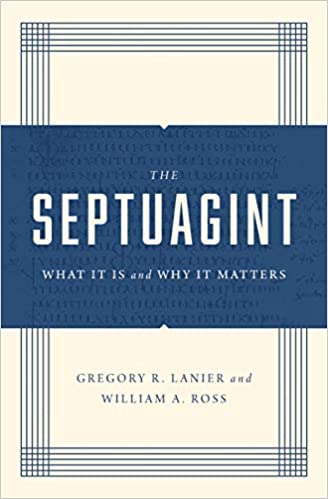A Book Review from Books At a Glance
by B. Jason Epps
Dr. Gregory Lanier is a PhD from the University of Cambridge. He is an associate professor of New Testament at Reformed Theological Seminary in Orlando, Florida, focusing on Christology, the Gospels, and the Septuagint. He also serves as a pastor at River Oaks Church. Dr. William A. Ross is a PhD from the University of Cambridge. He is an assistant professor of Old Testament at Reformed Theological Seminary in Charlotte, North Carolina, focusing on the Septuagint, Judaism, and linguistics.
This book was born out of the concern that the Septuagint has been all but ignored by pastors and the broader Christian community. As such, Lanier and Ross desire to create not only an awareness of the Septuagint, but also advocate for its importance. As the book’s subtitle implies, this book is divided into two parts. The first part, “What Is the Septuagint,” deals with introductory matters such as the Septuagint’s history, defining the types of Greek translations that comprise the Septuagint, and comparing and contrasting it with the Masoretic or Hebrew text at key points. The second half of this book concerns itself with why the Septuagint matters, focusing on its importance for the Old Testament, the New Testament, and degrees in which the Septuagint has been seen as authoritative, particularly among the Eastern Orthodox Church, the Catholic Church, and Protestants, comparing and contrasting the different positions.
Despite the tendency for similar discussions to be immensely technical, Lenier and Ross write in an approachable way, defining key theological and linguistic terms as well as citing multiple examples from the English text and providing summary boxes of key concepts. The authors also provide numerous footnotes which allow the reader to research the subject matter further if desired. Because of their presentation of the material, the reader is equipped to successfully understand the more detailed sources that they cite.
This book sets out to make a detailed and complicated subject matter accessible to the masses, a goal which Lanier and Ross most assuredly meet. As such, I would highly recommend this book for anyone who wants to learn more about the Septuagint, the Old Testament in general, or the history of interpretation. The authors provide an excellent model which I hope many scholars attempt to emulate.
B. Jason Epps
Midwestern Baptist Theological Seminary
